Case Law Details
Kaushal Kishor Singh Vs Sita Kuoni World Travel India Ltd. (Delhi High Court)
The law is well settled that the burden of proving the relationship of employer and employee lies on the workman. The inference regarding this relationship has to be inferred from facts and circumstances in each case and no general view can be taken in such matters.
In the present case the award is well-reasoned and has been passed after duly considering and evaluating the evidence placed on record. Ld. Labour Court has rightly appreciated that the workman has failed to establish the relationship of employer-employee with the management. A bare perusal of the documents filed as evidence on behalf of the petitioner workman, which includes the various emails and the forms under 16A, do not, in any way, prove that there existed any relationship of employer “employee between the parties. The emails show mere correspondence and the Form 16A categorically reflects that TDS was deducted by the Management in respect of payments made to the petitioner under the head of payments made to contractors and sub-contractors”, thereby disqualifying the petitioner to fall within the definition of workman as enumerated under Section 2(s) of ID Act.
FULL TEXT OF THE JUDGMENT/ORDER OF DELHI HIGH COURT
Background Facts
1. The present writ petition has been moved by the petitioner workman impugning and seeking to set aside the order dated 07.06.2018 passed by Sh. Lokesh Kumar Sharma, Ld. Presiding Officer, Labour Court XIX, Dwarka Courts, in L.I.R. No. 202/16, whereby the learned Labour Court held that the workman has failed to establish the existence of employer-employee relationship and therefore the question of illegal or unjustifiable termination did not arise and dismissed the statement of claim of the workman for being devoid of any merits.
2. Briefly stated the facts as alleged in the petition are that the petitioner workman joined the services of the respondent management as an Approved Part Time Foreign Language Linguist Guide in the year 2011 for around three years. Admittedly, petitioner was not issued any appointment letter.
3. The respondent management vide an email dated 25.03.2014, illegally terminated the services of the petitioner workman, without giving any notice, holding any inquiry, or assigning any valid reason.
4. Aggrieved, the petitioner workman sent a demand notice dated 01.09.2014 to the management, although no reply was received thereto. However, pursuant to receiving the aforesaid demand notice, the Management immediately released the workman’s pending payments, but did not reinstate him back in service.
5. The petitioner has alleged that the management has illegally and arbitrarily terminated his service, flouting the provisions contained in the Industrial Dispute Act, 1947, and without following due process of law.
6. Petitioner workman raised an industrial dispute, in lieu of this and the following reference was framed to be adjudicated and determined:
“Whether there existed an employer employee relationship between the Management and Sh. Kaushal Kishor Singh S/o Sh. Netra Pal Singh and if so, whether services of Sh. Kaushal Kishor Singh have been terminated illegally and/ or unjustifiably by the Management and if so, to what relief is he entitled?”
7. Notice of reference was issued to the workman, who then filed his statement of claim. Respondent management contested the statement of claim by filing their written statement. The management vehemently denied the existence of an employer-employee relationship between the workman and the management.
8. Labour Court passed the award [impugned herein], inter alia holding that the workman has failed to establish the existence of employer-employee relationship and therefore the question of illegal or unjustifiable termination did not arise and dismissed the statement of claim of the workman for being devoid of any merits.
Contentions of the petitioner-workman
9. Aggrieved thus, the petitioner has preferred the present writ petition on the following salient grounds:
a. Ld. Labour Court erred by not appreciating the evidence placed on record by the petitioner. These include the eight emails, duly supported by a Certificate u/s 65B of Evidence Act to show correspondence between the workman and the management [Annexures P-4 to P-10]; termination email sent by the management to the workman to show relationship of an employer & employee between the two [Annexure P17]; the four FORM Nos.16 A [Annexure P11 – P14] to show payments made for the services “hired and rendered” by the Petitioner as a Part Time German Tourist Guide; license of the petitioner issued by the Ministry of Tourism [Annexure P2] reflecting the petitioner to be an Approved Part Time German Linguistic Guide.
b. Ld. Labour Court failed to properly examine the work experience certificate [Annexure P-19] and the complaint filed by one of the tourist’s, on the basis of which, the workman was allegedly illegally terminated.
c. Section 2 (s), ID Act, entails an exhaustive definition of the term ‘workman’ and includes within its ambit any person, including an apprentice employed in any industry to do any manual, unskilled, skilled, technical, operational, clerical, or supervisory work for hire or reward, and it is immaterial that the terms of employment are not reduced into writing. The definition of workmen does not distinguish between fulltime, part time, contractual employee. Thus it cannot be inferred, that only a person employed on regular/whole time basis is a workman and those employed on temporary/ part time or contract basis on fixed wages! or as casual employee is not a workman. Reliance is placed on Devender Singh vs. Municipal Council Sanaur, 2011 (6) SCC 584 and Yashwant Singh Yadav Vs State of Rajasthan, 1989 (1) Raj LR 156.”
10. It has been submitted that in view of the aforesaid contentions the petitioner is entitled to be reinstated back in service with retrospective effect, full back wages and other monetary benefits in continuity of his previous service and without any stigma of gap.
Contentions of the respondent management
11. Counsel for the respondent management, on the other hand, submits that the Impugned Award does not suffer from any infirmity which may require the interference of this Court.
12. Counsel submits that the Ld. Labour Court while passing the Impugned Award, has rightly returned the finding of fact based on the evidence and material on record, that there was no relationship of employer – employee between the parties. Ld. Counsel submits that such a finding of fact recorded by the Labour Court is not open to challenge in the writ jurisdiction under Articles 226 and 227 of the Constitution of India and the present petition merits dismissal on this ground itself.
13. Ld. Counsel has invited the attention of this Court to the response of the petitioner to his termination email wherein he has categorically admitted that he was committed to do the assignment tours for the respondent management and that is why he did not take up any dates from other travel agencies, and since the respondent had cancelled his assignments, he was rendered workless for the said duration. It has been submitted that thus the Petitioner was a freelancer as he was handling assignments in respect of other travel agencies as well.
14. Ld. Counsel submits that the Labour Court on the basis of material on record has rightly returned the finding that the petitioner herein cannot be construed as a part-time employee. Learned counsel submits that to be in the category of part-time employee, the nature of work should be regular and continuous whereas the assignments given to the Petitioner herein were in intermittent gaps and not regular in nature.
14. Ld. Counsel submits that the Petitioner fell in the category of General Linguistic Guide which provided that the Regional Level Tourist Guide had to work as license Guide for at least 90 days in a year and they would be paid guide fees as revised from time to time by TGFI in consultation with IATO/TAAI representatives. The said guidelines clearly provide that the Regional Level Guides should not be regularly/ permanently employed in travel & hospital industry, and they would not refuse any assignment from the Ministry of Tourism unless there is a valid reason for doing so.
15. Ld. Counsel has further submitted that the Ld. Labour Court, while dismissing the claim of the Petitioner, has categorically returned a finding that the onus to prove the relationship of employer- employee was upon the workman, who himself admitted during his cross – examination that he was not provided any statutory benefits, PF, bonus or ESI. He was not paid regular amounts by way of salary or otherwise, which were being provided to its employees by the management. Ld. Counsel submits that the workman had admitted during his cross examination that he was working as a Guide on assignment basis and thus was not given any promotion or fixed salary from the Management and was getting payments only on assignment basis.
16. Counsel submits that finding of facts is based on evidence and material on record and the Petitioner is not competent to challenge the same by way of the writ jurisdiction of this Court. Thus, the present petition is frivolous, legally untenable and is liable to be dismissed at the very threshold.
17. Counsel submits that the Petitioner fell in the category of General Linguistic Guide which provided that the Regional Level Tourist Guide had to work as license Guide for at least 90 days in a year and they would be paid guide fees as revised from time to time by TGFI in consultation with IATO/TAAI representatives. The said guidelines clearly provide that the Regional Level Guides should not be regularly! permanently employed in travel & hospital industry, and they would not refuse any assignment from the Ministry of Tourism unless there is a valid reason for doing so.
Finding and Analysis
18. The extent of writ jurisdiction has been considered by this Court and the Supreme Court in a catena of judgments. In Hari Vishnu Kamath v. Ahmed Ishaque & Ors., AIR 1955 SC 233, the Supreme Court has held as under:
“21. … On these authorities, the following propositions may be taken as established: (1) Certiorari will be issued for correcting errors of jurisdiction, as when an inferior Court or Tribunal acts without jurisdiction or in excess of it, or fails to exercise it. (2) Certiorari will also be issued when the court or Tribunal acts illegally in the exercise of its undoubted jurisdiction, as when it decides without giving an opportunity to the parties to be heard, or violates the principles of natural justice. (3) The court issuing a writ of certiorari acts in exercise of a supervisory and not appellate jurisdiction. One consequence of this is that the court will not review findings of fact reached by the inferior court or tribunal, even if they be erroneous. This is on the principle that a court which has jurisdiction over a subject-matter has jurisdiction to decide wrong as well as right, and when the legislature does not choose to confer a right of appeal against that decision, it would be defeating its purpose and policy, if a superior court were to rehear the case on the evidence, and substitute its own findings in certiorari. These propositions are well-settled and are not in dispute.”
20. While determining the question regarding whether the finding by the Tribunal, under the Act, on question of fact, was liable to be interfered with, the Supreme Court in Dharangadhara Chemical Works Ltd. v. State of Saurashtra and Others, AIR 1957 SC 264, made the following observations:
“19. … It is equally well settled that the decision of the Tribunal on a question of fact which it has jurisdiction to determine is not liable to be questioned in proceedings under Article 226 of the Constitution unless at the least it is shown to be fully unsupported by evidence.”
21. This Court cannot sit in an appeal and substitute its view with that of the Ld. Labour Court. Ld. Labour Court in cases pertaining to industrial dispute is the final adjudicator of facts. This court in its writ jurisdiction have to be circumspect and cannot entertain petitions unless the award is perverse, illegal, if there is an error apparent on the face of the record, if there is impropriety in the decision-making process, or if the same is passed without jurisdiction. Further, this court in its writ jurisdiction cannot reappraise the evidence and come to a different conclusion. Reliance is placed on Syed Yakoob vs KS Radhakrishnan &Ors. AIR 1964 SC 477, Hari Shankar Sharma vs Artifical Limbs Manufacturing Corp. & Ors. (2002) 1 SCC 337, Sadhu Ram vs DTC (supra), General Manager ONGC, Silchar vs ONGC Contractual Workers Union (supra).
22. Further, relying on several judgements, this Court vide its judgement dated 21.07.2017 in D.D.A. v. Mool Chand, WP (C) 9468/2004, echoed the following principles:
“28. Relying on the principles enunciated in the above decision, a catena of pronouncements of the Supreme Court, including Management of Madurantakam Cooperative Sugar Mills Ltd. v. S. Viswanathan, (2005) 3 SCC 193; P.G.I. of Medical Education and Research, Chandigarh v. Raj Kumar (2001) 2 SCC 54 and M.P State Electricity Board v. Jarina Bee, (2003), 6 SSC 141, followed, which may be regarded as having laid down, authoritatively, the following principles:
i. The Labour Court! Industrial Tribunal is the final fact-finding authority
ii. The High Court, in exercise of its powers under Article 226!227, would not interfere with the findings of fact recorded by the Labour Court, unless the said findings are perverse, based on no evidence or based on illegal! unacceptable
iii. In the event that, for any of these reasons, the High Court feels that a case for interference is made out, it is mandatory for the High Court to record reasons for interfering with the findings of fact of the Labour Courts! Industrial Tribunal, before proceeding to do so.
iv. Adequacy of evidence cannot be looked into, while examining, in writ jurisdiction, the evidence of the Labour Court.
v. Neither would interference, by the writ court, with the findings of fact of the Labour Court, be justified on the ground that a different view might possibly be taken on the said facts.
29. “Perversity”, for its part, is attributed to a judicial/ quasi-judicial decision if the decision ignores/excludes relevant material, considers irrelevant/inadmissible material, is against the weight of evidence, or so outrageously defies logic as to suffer from irrationality [Damodar Lal v. Sohan Devi, (2016) 3 SCC 78; S R Tiwari v. Union of India, (2013) 6 SCC 602; Rajinder Kumar Kindra v. Delhi Administration, (1984) 4 SCC 635; Kuldeep Singh v. Commissioner of Police, (1999) 2 SCC 10; Gamini BalaKoteswara Rao v. State of AP, (2009) 10 SCC 636; Babu v. State of Kerala, (2010) 9 SCC 1 89; Dr. Sunil Kumar Sambhudayal Gupta v. State of Maharashtra, (2010) 13 SCC 657]”
23. In Bhuvnesh Kumar Dwivedi vs. M/S Hindalco Industries Ltd, Civil Appeal Nos. 4883- 4884/2014, Arising out of SLP (C) Nos.554 – 555/2012, the Supreme Court has inter alia held as under:
“22. A careful reading of the judgments reveals that the High Court can interfere with an order of the Tribunal only on the procedural level and in cases, where the decision of the lower courts has been arrived at in gross violation of the legal principles. The High Court shall interfere with factual aspect placed before the Labour Courts only when it is convinced that the Labour Court has made patent mistakes in admitting evidence illegally or have made grave errors in law in coming to the conclusion on facts. The High Court granting contrary relief under Articles 226 and 227 of the Constitution amounts to exceeding its jurisdiction conferred upon it ”
24. The law is well settled that the burden of proving the relationship of employer and employee lies on the workman. The inference regarding this relationship has to be inferred from facts and circumstances in each case and no general view can be taken in such matters.
25. In the present case the award is well-reasoned and has been passed after duly considering and evaluating the evidence placed on record. Ld. Labour Court has rightly appreciated that the workman has failed to establish the relationship of employer-employee with the management. A bare perusal of the documents filed as evidence on behalf of the petitioner workman, which includes the various emails and the forms under 16A, do not, in any way, prove that there existed any relationship of employer “employee between the parties. The emails show mere correspondence and the Form 16A categorically reflects that TDS was deducted by the Management in respect of payments made to the petitioner under the head of payments made to contractors and sub-contractors”, thereby disqualifying the petitioner to fall within the definition of workman as enumerated under Section 2(s) of ID Act.
26. Moreover admittedly, the petitioner had never applied for any employment with the Management in writing. As per petitioner, he had an oral interview with one Sh. Sanjay Malik from the management in 2011. It is an admitted fact that neither any written examination was conducted and nor any offer/appointment letter was issued to the petitioner.
27. Further admittedly, the petitioner worked as a Guide on assignment basis and was neither given any promotion and/ or bonus, nor was he covered under the applicable statutory enactments such as ESI, PF, etc.
28. The petitioner was not provided any regular amount as salary or otherwise which were being given to its other employees by the Management. Instead, the petitioner was paid on assignment basis. Furthermore, even the license of the petitioner, issued by the Ministry of Tourism & Culture, Govt. of India [Annexure P2] does not help the case of the petitioner to establish any employer-employee relationship with the management. So far as the guidelines pertaining to the Guides are concerned, even though at the time when the Award was passed, its source was said to be unclear, and now as submitted by the petitioner, even if the said source of obtaining the Guidelines via RTI is believed to be authentic, it still fails to show the relationship of employer-employee between the parties. Holding a qualification or being eligible for employment does not prove that the person was in fact employed by the said management.
29. It is pertinent to note that such license issued by the Government, or educational qualification of a person merely makes the person eligible for the employment and in no way establishes or implies relationship of the workmen with that of the management. For instance, in the present case, the license issued by the Ministry of Tourism & Culture, of India merely reflects that the petitioner is an Approved Part Time German Linguistic Guide. It does not in any way prove any relationship of employer-employee with the management, as such licenses are issued by the Government to guides and do not amount to an employment document with the employer management. Even the guidelines relied on by the petitioner merely reflect that the workman was eligible to be a guide and was issued the license from the government. However, the said guideline in no way establishes the relationship of the petitioner with that of respondent management.
30. Moreover, the work experience of the petitioner [Annexure P-19] issued by the management, clearly reflects that the petitioner workman was working as a freelance German speaking guide with the management from 2013 – 14, on assignment basis and was given payment on assignment basis as well.
31. Freelance as per the term itself implies a person who acts independently without being affiliated with or authorized by an organization and is distinguishable from part-time, full-time or contractual employees. Freelancing thus enables a person to work for himself and multiple other employees and enables unfettered submission of work to many potential buyers. For eg. a writer who submits work to many publishers, a journalist working for several channels, a tour guide etc.
32. Freelancer or freelancing thus are terms currently used to mean a person who is self-employed or an independent contractor in the business of selling their services and skills to different employers for a specified time period. Etymologically, freelance has derived from the words – ‘Free’ a Germanic word which means to ‘love’, and ‘lance’ which is akin to the French word meaning to ‘launch’, or discharge with force.
33. In freelance therefore, there is no master – servant relationship, as the servant is his own master and has the ability to pick and choose his assignments, the duration of such assignments and is enabled to work for himself as well as other multiple employers. The cases relied on by the petitioner are not applicable to the present case as the same are distinguishable on facts. The judgements cited by the petitioner are to the extent that Section 2 (s), ID Act does not distinguish between full-time, part-time and contractual employees. However, it pertinent to note that the petitioner is neither a full-time! nor a part-time! contractual employee. Ld. Labour Court, has also categorically held that the petitioner cannot be construed to be a part-time employee and has failed to establish the employer-employee relationship.
34. In my considered view, the documents relied upon by the petitioners are not sufficient to establish an employer-employee relationship and are of doubtful origin. These documents would have some value only if there were some basic primary nature of evidence of more acceptable type as already mentioned in the form of ESI, PPF records maintained by the company or PPF No. etc. which liability the company would not have escaped if the workman was working there. There is no evidence of even leave taken or refused during the alleged tenure. So, I hold that there existed no relationship of employer and employee between the parties.
35. In view of aforesaid findings, this Court is of the opinion that this is not a case where Labour Court has failed to take into consideration the documents produced by claimant-petitioner. In fact, after extensively considering the entire documents on record, Labour Court had reached the conclusion that there exists no employer and employee relationship between respondent-Company and appellant- Moreover, as the findings arrived at by the Labour Court are neither perverse nor based on no evidence, this Court is of the view that they call for no interference in writ jurisdiction.
36. In view of the above discussions, it cannot be said that the findings and the order passed by the learned Labour Court, suffers from any such inherent illegality, jurisdictional error, or perversity, as would justify interference, therewith, by this Court, in exercise of the limited jurisdiction conferred, on it by virtue of Article 226 of the Constitution of India. I find no reason to differ with the findings of the learned Labour Court, to the effect that there exists no relationship of employer-employee between the parties and that the petitioner was not a part time workman, but a freelance guide. This Court considers that the Impugned Award passed by the Learned Labour Court is valid and in accordance with law.
37. Accordingly, the present writ petition is dismissed.









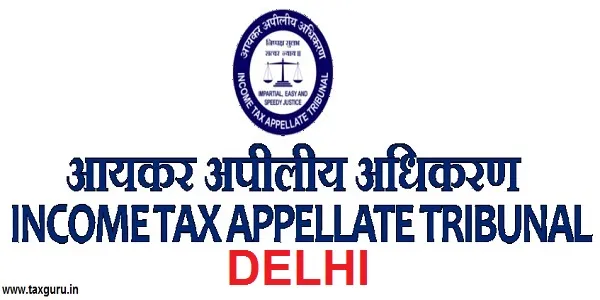

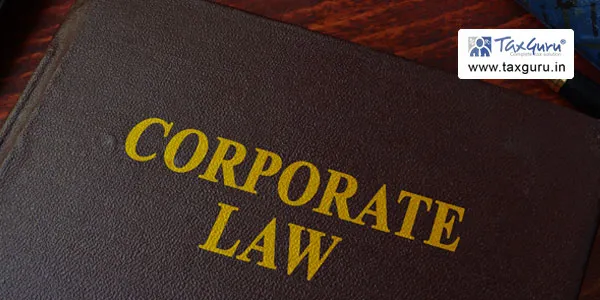

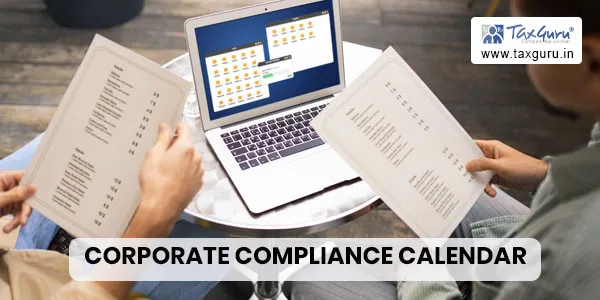





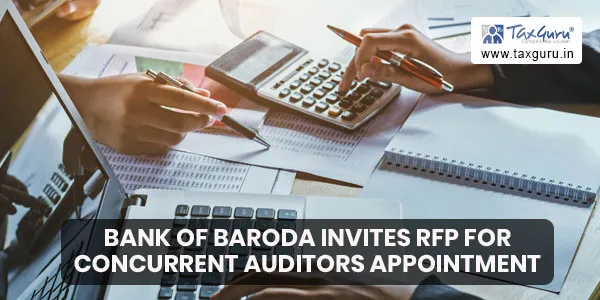
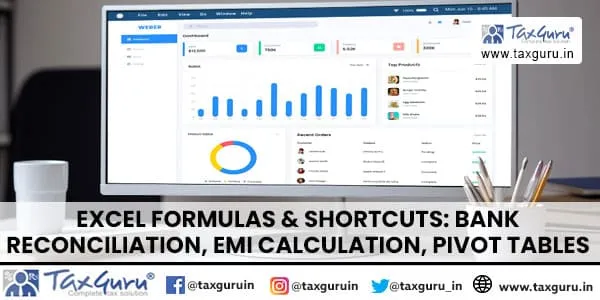
GOOD